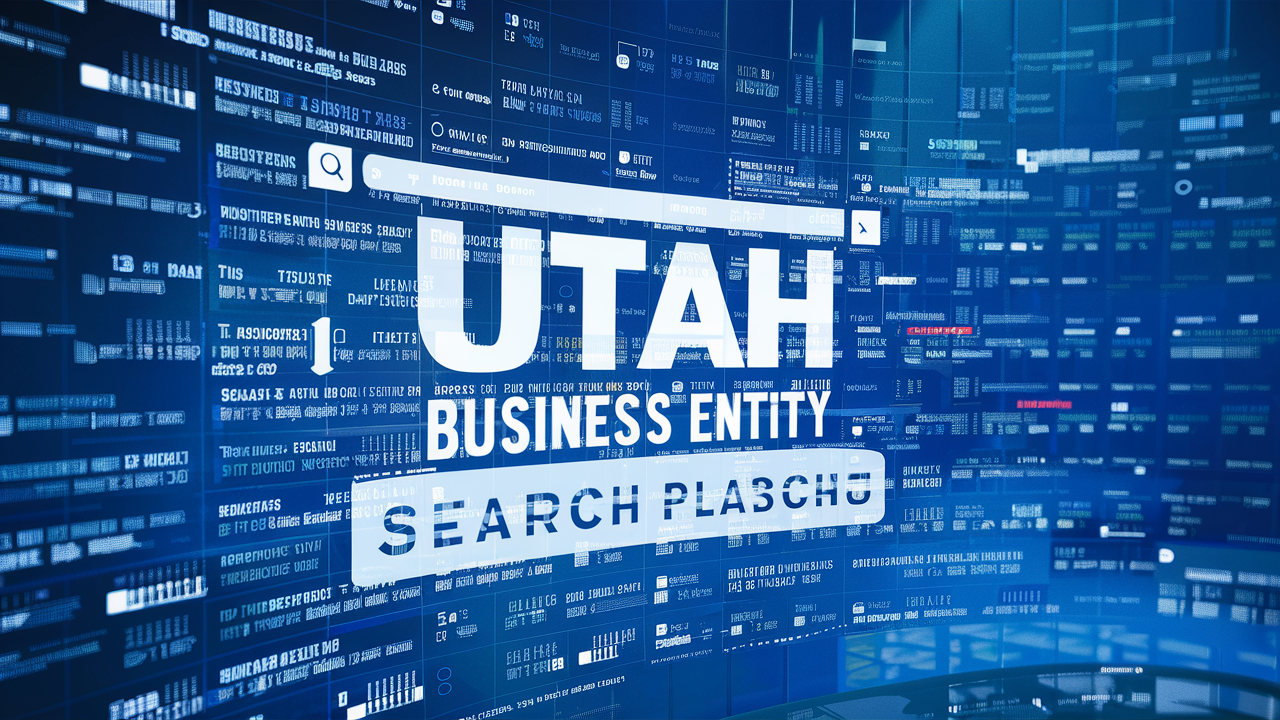When starting a new business or investigating an existing one, verifying a company’s legal status is essential. Whether you’re an entrepreneur, investor, or curious customer, tools like the Utah Business Entity Search and national databases help you access vital information. But how do these systems differ? Which one is more reliable, comprehensive, or convenient? This article offers an in-depth comparison between Utah’s state-level search tool and broader national databases, providing clear guidance on which may serve your needs better.
Understanding the Basics
What Is a Business Entity Search?
A business entity search is a digital tool provided by government agencies or private platforms that lets users retrieve details about companies. These details may include:
- Company name
- Business status (active, expired, dissolved)
- Registration number
- Filing history
- Registered agent information
- Formation date
- Type of entity (LLC, corporation, nonprofit, etc.)
These searches are crucial for various stakeholders, such as lawyers conducting due diligence, suppliers checking business legitimacy, or entrepreneurs researching available business names.
What is the Utah Business Entity Search?
The Utah Business Entity Search is a free, official tool provided by the Utah Division of Corporations and Commercial Code. This service allows users to look up any registered business operating within the state. Accessible online, the portal helps confirm whether a business is legally registered, what kind of entity it is, and other important operational facts.
To use the Utah search tool, users typically need one of the following:
- The business name (full or partial)
- Entity number
- Executive name
- Registered agent’s name
This platform ensures transparency, helping individuals and companies make informed decisions.
What Are National Business Databases?
National business databases are aggregators or federal-level registries that collect business data from all 50 states and territories. They are typically run by private organizations or government-affiliated entities. Examples include:
- Dun & Bradstreet (D-U-N-S® numbers)
- SEC EDGAR (for public companies)
- OpenCorporates
- Better Business Bureau (BBB)
- IRS EIN verification (for nonprofits and employers)
- Privately run directories (like Bizapedia or CorporationWiki)
While these databases often include a broader range of businesses, including unregistered or unincorporated ventures, the data may not always be as current or legally verifiable as state-level sources.

Comparing Utah Business Entity Search vs. National Databases
Let’s break down the key differences across various factors.
1. Accuracy and Official Status
- Utah Business Entity Search: Directly tied to the Utah state government. Information is pulled from official filings and maintained by the Division of Corporations.
- National Databases: Data may be compiled from multiple sources, including public filings, but might not reflect real-time status changes (e.g., recent dissolutions, mergers, or amendments).
Winner: Utah Business Entity Search — You get real-time, legally binding data straight from the source.
2. Geographic Scope
- Utah Business Entity Search: Limited to companies registered in Utah. If the business operates in other states or is foreign-registered, it won’t appear here.
- National Databases: Cover businesses across all states, making them ideal for multi-state analysis.
Winner: National Databases — Best for nationwide company research or comparative analysis.
3. Usability and Interface
- Utah Business Entity Search: Clean and straightforward. Allows various search parameters like entity number, executive name, or agent name. Results are easy to navigate.
- National Databases: Vary widely in user experience. Some, like Dun & Bradstreet, are well-structured but may require registration or payment for full access.
Winner: Tie — Utah’s tool is great for local use, while premium national tools offer sophisticated dashboards.
4. Cost and Accessibility
- Utah Business Entity Search: Completely free. No account setup, no hidden costs.
- National Databases: Some are free (like OpenCorporates), but many require paid subscriptions for comprehensive reports or historical data.
Winner: Utah Business Entity Search — Offers free, high-quality data for businesses operating in the state.
5. Use Case Flexibility
- Utah Business Entity Search: Best suited for verifying a specific business in Utah or checking name availability when forming a new business in the state.
- National Databases: Great for lead generation, competitor analysis, investor research, and finding connections between entities.
Winner: National Databases — Provide more flexibility for research-intensive or multi-layered tasks.
When Should You Use the Utah Business Entity Search?
Knowing when to use a specific tool is just as important as knowing what it does. Here are ideal scenarios for choosing the Utah Business Entity Search:
Starting a Business in Utah
If you’re forming an LLC or corporation in Utah, the search tool helps you:
- Check name availability
- View similar existing names
- Confirm if the name is too similar to an existing one
Verifying a Local Partner or Client
Before signing a contract, make sure your Utah-based partner is legally registered and in good standing.
Conducting Legal or Financial Due Diligence
Whether you’re a lawyer reviewing corporate history or a lender assessing risk, this tool provides legally trustworthy documentation.
When Are National Databases More Useful?
Although the Utah search tool is great for local needs, national databases shine in the following areas:
National and International Business Tracking
If you’re an investor or researcher dealing with companies across multiple states (or even countries), databases like OpenCorporates and Dun & Bradstreet provide a broader view.
Unregistered and Online Businesses
Some national directories list unregistered businesses, online-only stores, or sole proprietors, offering a snapshot of less formal ventures.
Building a Prospect List
Sales and marketing professionals use these tools to identify leads, analyze industries, and gather contact details, especially in B2B environments.
Pros and Cons Summary
| Feature | Utah Business Entity Search | National Databases |
|---|---|---|
| Source | Official state government | Aggregated from public/private sources |
| Coverage | Utah-only | All U.S. states (and sometimes international) |
| Cost | Free | Free to premium |
| Accuracy | Very high | Varies |
| User Experience | Simple, direct | Varies (some require sign-up) |
| Best For | Legal verification, new registrations | Research, prospecting, multi-state analysis |
Utah Business Entity Search: A Reliable First Step
Why You Should Always Start with the State Database
Even if you’re using a national database, it’s always a good idea to cross-check against the Utah Business Entity Search if the company in question is Utah-based. This ensures:
- Legal validity
- Updated status
- Accurate formation records
This is especially critical for attorneys, accountants, and banks who rely on official filings.
FAQs: Quick Answers About Business Entity Searches
1. Is the Utah Business Entity Search free to use?
Yes, it’s completely free and open to the public via the Utah Division of Corporations.
2. Can I see who owns a business in Utah?
Sometimes. You may see executives, directors, and registered agents, but ownership details for LLCs may be limited.
3. What if a business isn’t listed in the Utah database?
It may not be registered in Utah. Try a national database or check another state’s business registry.
4. Are national business databases accurate?
They’re useful, but you should always verify important details with official state-level resources.
5. Can I register my business directly through the Utah search site?
No, but the Utah Division of Corporations website allows you to file new business registrations separately.
Conclusion: Which Is Better?
The answer depends on your specific needs. If you’re dealing strictly within Utah—whether you’re registering a business, verifying legitimacy, or reviewing company filings—the Utah Business Entity Search is your most accurate and cost-effective tool. However, if you need broader context, want to explore companies in other states, or need more advanced features like lead generation or cross-entity tracking, national databases offer greater flexibility.
In many cases, the best strategy is to use both. Start with the Utah Business Entity Search to ensure accurate, up-to-date local data, then expand your research using national platforms to uncover deeper insights and broader trends.




